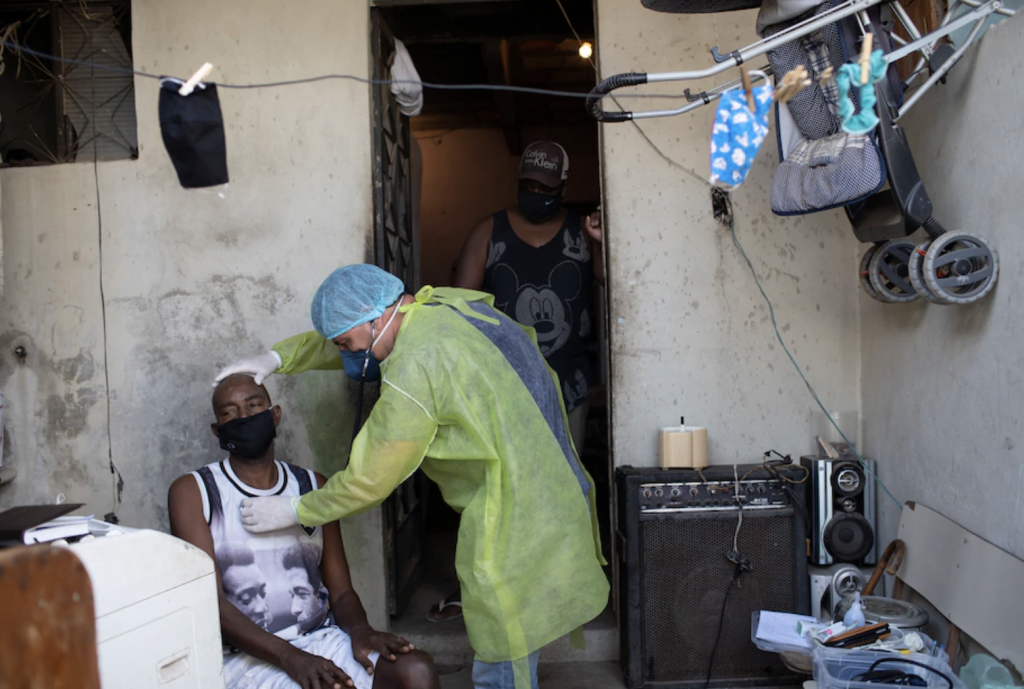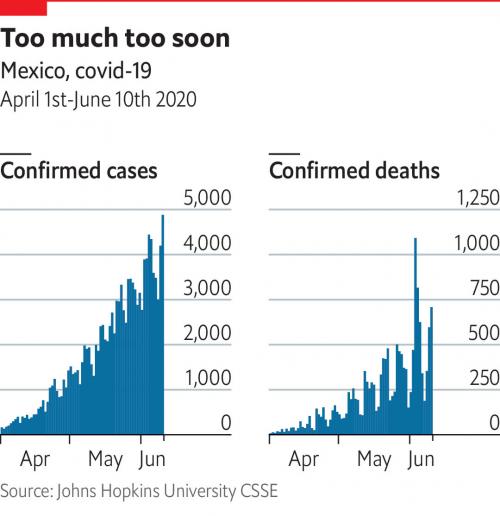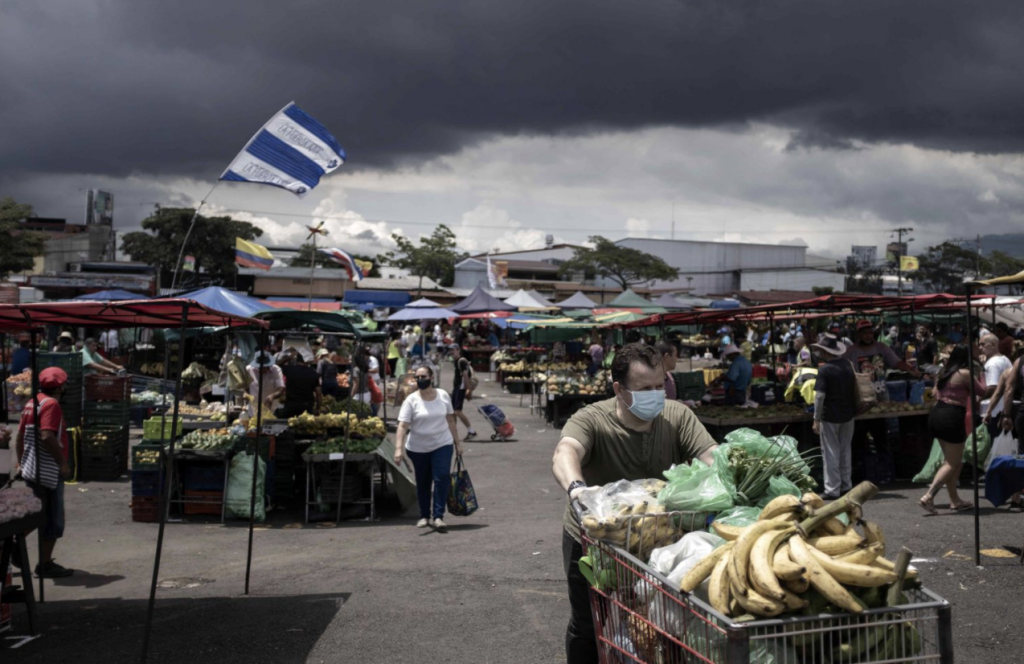
The Coronavirus is killing many more young people in the developing world [Spanish; “El coronavirus está matando a muchos más jóvenes en los países en vías de desarrollo”]
COVID-19 is currently making its move towards the developing world, and while doing so, is changing the profile of victims of the disease. Opposite to what was seen in wealthier countries, the disease is killing more young people than older populations in the poorer countries, resulting in the need to understand the disease from a new perspective. In Brazil, people under 50 years of age account for 15% of deaths, which is more than 10 times greater than in Italy or Spain. In Mexico, about 1/4 of deaths are of people between 25 and 49 years old. In India, nearly half of deaths were of people younger than 60 years this month.
Colombia’s Medellin Emerges as Surprise COVID-19 Pioneer [English]
In Medellín, Colombia, only four deaths have been confirmed as caused by COVID-19, a remarkable number for a city with 2.5 million residents. This low number is the result of early preparation by government officials, as well as the use of an app early on to track data on the virus for containment. Although there was worry for privacy issues with the app, 1.3 million families voluntarily signed up for the app from the city and its surrounding areas, contributing to its efficacy in helping fight the local spread of the disease.

The US remove emergency approval for use of chloroquine [Portuguese; “EUA retiram aprovação de emergência para o uso de cloroquina“]
The FDA revoked its prior emergency authorization for the use of chloroquine and hydroxychloroquine, citing lack of proof of its benefits and efficiency for the treatment of COVID-19. In Brazil, the medications are still recommended by the Health Ministry, and its use is publicly supported by President Bolsonaro, which caused tension that led to the exit of the last Health Minister, Nelson Taich. The decision by the FDA comes two weeks after the US sent Brazil a donation of two million doses of hydrochloroquine for use in combating COVID-19.

Running a red light: Mexico’s reopening [English]
Mexico has begun its transition into reopening the country, but the move might be too soon considering the current numbers of COVID-19 in the country. As the article states it best, “Mexico looks set to join India and others in applying a peculiar pandemic policy principle: if you can’t subdue the virus, subdue your quarantine instead.”

The pandemic threatens to leave 16 million Latin American in extreme poverty [Spanish; “La pandemia amenaza con dejar a otros 16 millones de latinoamericanos en la pobreza extremas”]
FAO and Cepal are warning of the potential scenario in the Caribbean and Latin America as COVID-19 advances in the areas. With the effect of the sanitary crises, a growing unemployment rate, limited access to fresh food, and rising prices in markets, millions are opting for cheaper food with lower nutritional values. The agencies suggest that governments work to give citizens a financial aid of about $47 dollars per person to guarantee households have enough to pay for food.

The pandemic is causing growing rejection towards globalization [Portuguese; “Pandemia faz acelerar rejeição à globalização”]
The IMF projects a 11% decrease in the global commerce market this year, without any outlook for recuperation in 2021. In an even more pessimistic projection, the WTO projects a 13% fall. The first pointer towards the global economic crisis was the spread of COVID-19 in China, considered a “global factory,” including Wuhan, the city identified with the initial spread of the virus. Wuhan is the headquarters for the Chinese production of automobiles and steel and houses multiple multinational businesses. Although it is early to make precise predictions, experts agree that the impact of the pandemic on the global market will be significant.